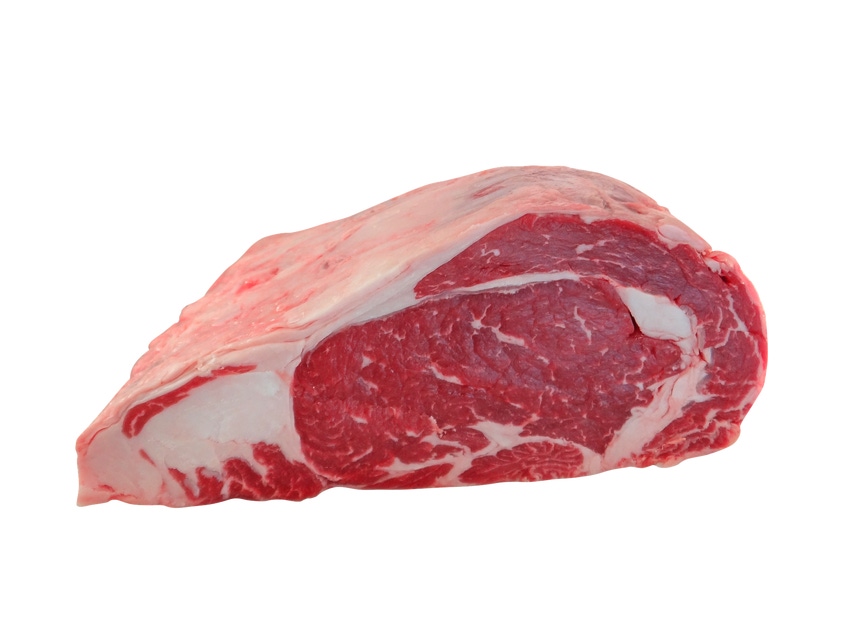Market estimated to be worth $2.6 billion for U.S. beef industry.

The Trump Administration announced May 11 that one of the 10 initial actions of the U.S.-China Economic Cooperation 100-Day Plan includes restoration of U.S. beef access to China, ending a nearly 14-year hiatus.
China’s Ministry of Agriculture & General Administration of Quality Supervision, Inspection & Quarantine announced last September that China’s ban on imports of U.S. beef had been lifted, but this was only a small part of necessary negotiations to begin importing. It wasn’t until last month at a Mar-a-Lago, Fla., meeting to advance U.S.-China economic cooperation that China's President Xi Jinping and President Donald Trump agreed on the 100-day action plan under the framework of the U.S.-China Comprehensive Economic Dialogue.
“We have waited 13 years for this development, and now we are one step closer to seeing U.S. beef in China,” said Kent Bacus, National Cattlemen’s Beef Assn. (NCBA) director of international trade.
NCBA president Craig Uden said regaining access to the market in China has been a longtime priority for cattle producers and NCBA members, in particular. “This is an issue we’ve been working on for over a decade, and it’s great to see it come to fruition,” he noted.
The Chinese market is one of the largest markets in the world, so the latest move is a significant milestone. In fact, the North American Meat Institute estimates it to be worth $2.6 billion for the U.S. beef industry.
“When you look at the overall population of China, it represents one-fifth of the world’s population, with a middle class that’s bigger than the entire U.S. population,” Bacus explained. “These people want meat. We want beef to be a part of those options, and quite frankly, considering the buying power that China represents, this could be a very significant development for U.S. beef sales — and that’s exactly what we need with cattle prices as volatile as they’ve been lately.”
Bacus said NCBA has learned that there will be one more round of technical consultations between the U.S. and China. After that, China is expected to allow imports of U.S. beef based on that protocol. That should happen no later than July 16, 2017. “Obviously, we are going to watch this very closely as it develops over the next couple weeks, and hopefully, we’ll be sending beef to China very soon,” he said.
According to Bacus, there have been a lot of discussions over the past several months to try to address China’s questions and concerns regarding U.S. beef. “Given the diversity of our industry and the vastness of the Chinese economy and their regulatory schemes, this is obviously something that has taken a long time to discuss,” he said.
China implemented a strict set of requirements — including no use of ractopamine or growth hormones — for beef imports from Australia and Canada when it reopened to those markets over the last couple of years, but Bacus said details of the U.S. negotiations have not been released yet. “With the next round of final consultations, we think that most of these concerns have been addressed,” he added.
Bacus said the discussions have really tried to emphasize with China that the U.S. has safe production systems by hosting tours and holding briefings. “We have done everything possible to educate them on the complexity of our production practices but also the safety. We’re looking forward to seeing what this protocol will be,” he said.
Uden said he thinks cattle feeders will adjust to the requirements if the value is there. “There are a lot of programs, even in the U.S. today, that are (ractopamine) free. We have to wait and see what protocol is," he said. "In the industry, we’re pretty entrepreneurial, so I think if there’s a way to add value to our beef industry, we’ll find it.”
The agreement means the U.S. will have access to 1.4 billion new customers for U.S. beef, Uden said, adding that NCBA will continue to be engaged as the negotiations are finalized. “China is becoming one of the greatest importers of beef in the world,” he said.
The demand growth is expected to continue, which is really great news for cattle producers, Uden said, adding, “We appreciate the Trump Administration for prioritizing U.S. beef.”
As far as meeting demand, Bacus said he thinks there is a lot of unmet demand. “We think that, given the opportunity to sell beef into the Chinese market, there will definitely be some moves within the U.S. beef industry to try to meet that demand. We still don’t know what all that will be, but we are looking forward to the opportunity," he said.
He explained that the Chinese market is similar to other Asian markets where there has been tremendous growth in sales of rounds, chuck rolls, tongue and offals — products that don’t really sell at a premium in the U.S. “Now, with this opportunity to sell beef into China, we see more competition for those cuts that have been selling very well in Asia, and we can see just the buying power of China is going to hopefully improve the profit margins on those cuts themselves. Quite frankly, there is a lot of unmet demand in China. We are looking forward to discovering just how high these sales can go.”
This will be important as the protein supply continues to expand, Uden noted, adding that as U.S. "herds grow and as costs continue to rise over here, we have to continue to maintain and grow our industry. All trade is important, but working with China would be a huge benefit to the beef industry.”
About the Author(s)
You May Also Like


.png?width=300&auto=webp&quality=80&disable=upscale)
